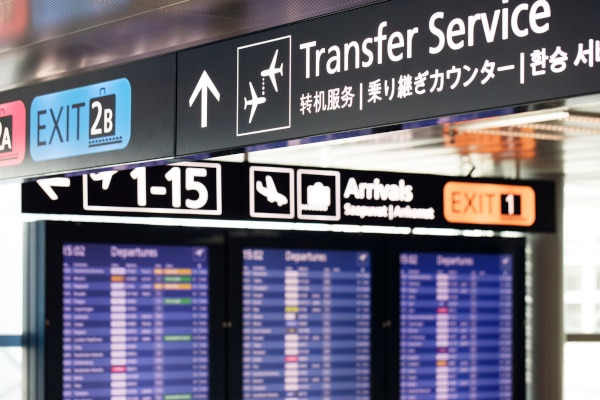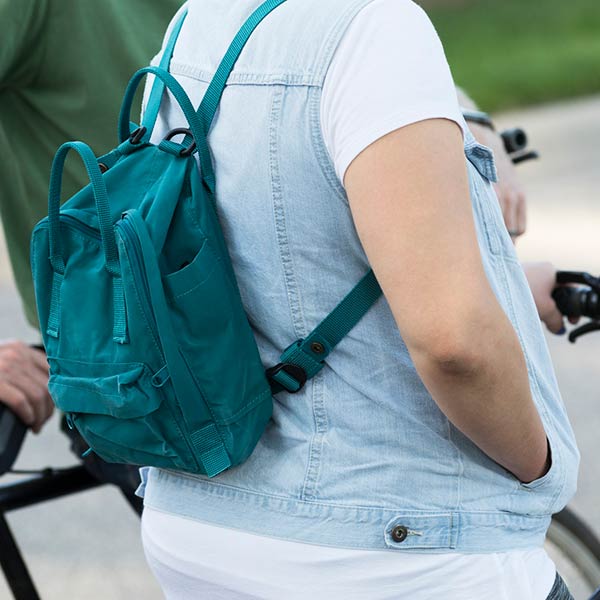Exploring the world as a TAI user
Transanal irrigation can keep you continent for up to two days, allowing you to explore the world without bowel management worries.
Traveling as a TAI user can take a little extra planning since you need to think about what to pack and how to maintain your routine in a new setting. This article includes simple packing tips and considerations to ensure your TAI routine is unaffected while you travel the world.
Traveling with transanal irrigation equipment
Peristeen® Plus Transanal Irrigation System is portable, compact, and lightweight, so it can be easily packed in a suitcase or carry on luggage, depending on the size allowed by the airline. Expect the unexpected and pack it with enough padding to prevent damage in transit. You might also want to pack extra catheters, just in case.

Travel Tips for TAI
Here are some of the key things to consider while traveling the world as a TAI user!

How do I irrigate my bowel while abroad?
The physical steps of your TAI routine should be the same whether you're abroad or at home. However, an important consideration while abroad is water quality. In places where tap water is unsafe to drink, use bottled water for your Peristeen Plus irrigations. This prevents any unwanted bacteria from entering your bowel. If you’re staying in a hotel, you may be able to ask that they provide bottled water ahead of your arrival.
Consider familiarizing yourself with the bathroom you'll be using while away and think through the steps of your irrigation procedure. Where does it makes sense to place the water bag? Is there a table or surface to place the control unit or catheter before use? Is there a trash can nearby? Thinking about these practicalities beforehand can help make the process easier, and use the Peristeen Plus irrigation checklist to make sure you have everything you need to get started.
How do I maintain my TAI routine while abroad?
Travel can disrupt daily routines, but it's important to adhere to your TAI schedule as much as possible. It might be a good idea to plan your days in advance and figure out the best time for irrigations.
How can I prepare for a long flight?
Some people like to complete an irrigation shortly before arriving at an airport and taking a long flight. This can provide additional peace of mind and bowel control while toilet accessibility may be more limited. Talk to your healthcare provider or Coloplast Care Advisor about additional precautions you can take before a long flight. You can reach Coloplast Care at 1-855-605-7594 or peristeen@coloplast.com.
How do I manage my diet while abroad?
While traveling, especially abroad, there may be changes to your diet. Try to maintain a balanced diet and stay hydrated whenever possible.
If you experience other challenges while traveling, like constipation, consult your healthcare provider for treatment recommendations.
Important Safety Information: Peristeen Plus is available by prescription only. Peristeen Plus empties the bowel by introducing water into the bowel using a rectal catheter. The anal irrigation procedure should always be carried out with care. Bowel perforation is an extremely rare, but serious and potentially lethal complication to anal irrigation and will require immediate admission to hospital, often requiring surgery. The risk information provided here is not comprehensive. To learn more, talk to your healthcare provider to understand the risks and benefits to determine if Peristeen Plus is right for you. This treatment is prescribed by your physician. Although many patients benefit from the use of this device, results may vary. For further questions, call Coloplast Corp. at 1-855-605-7594 and/or consult the company website at www.coloplast.us



